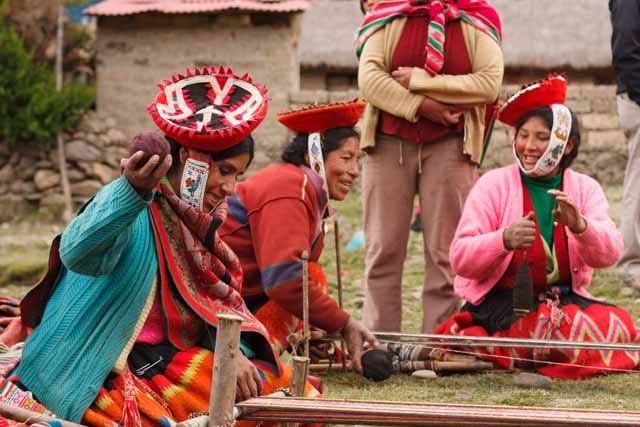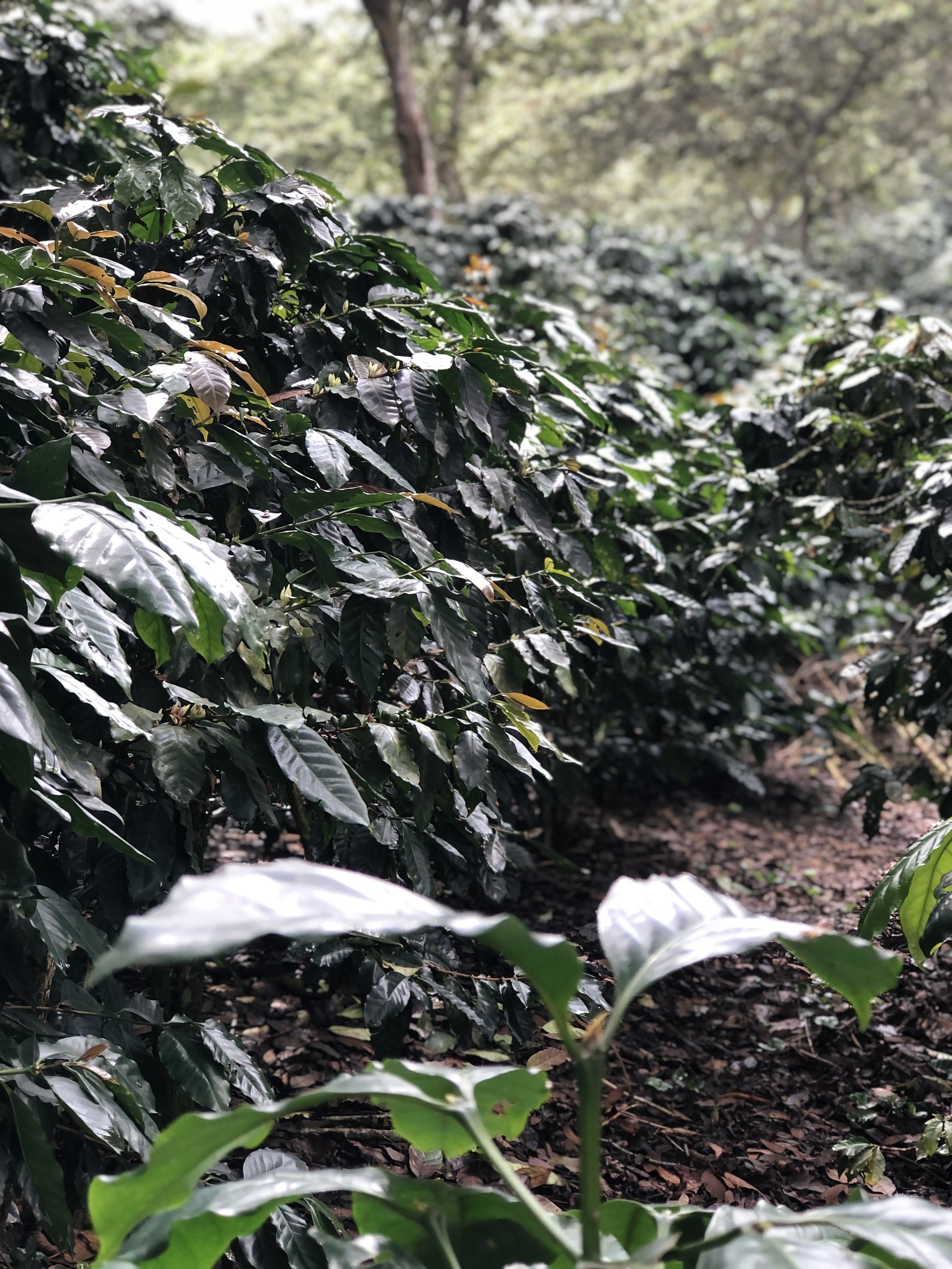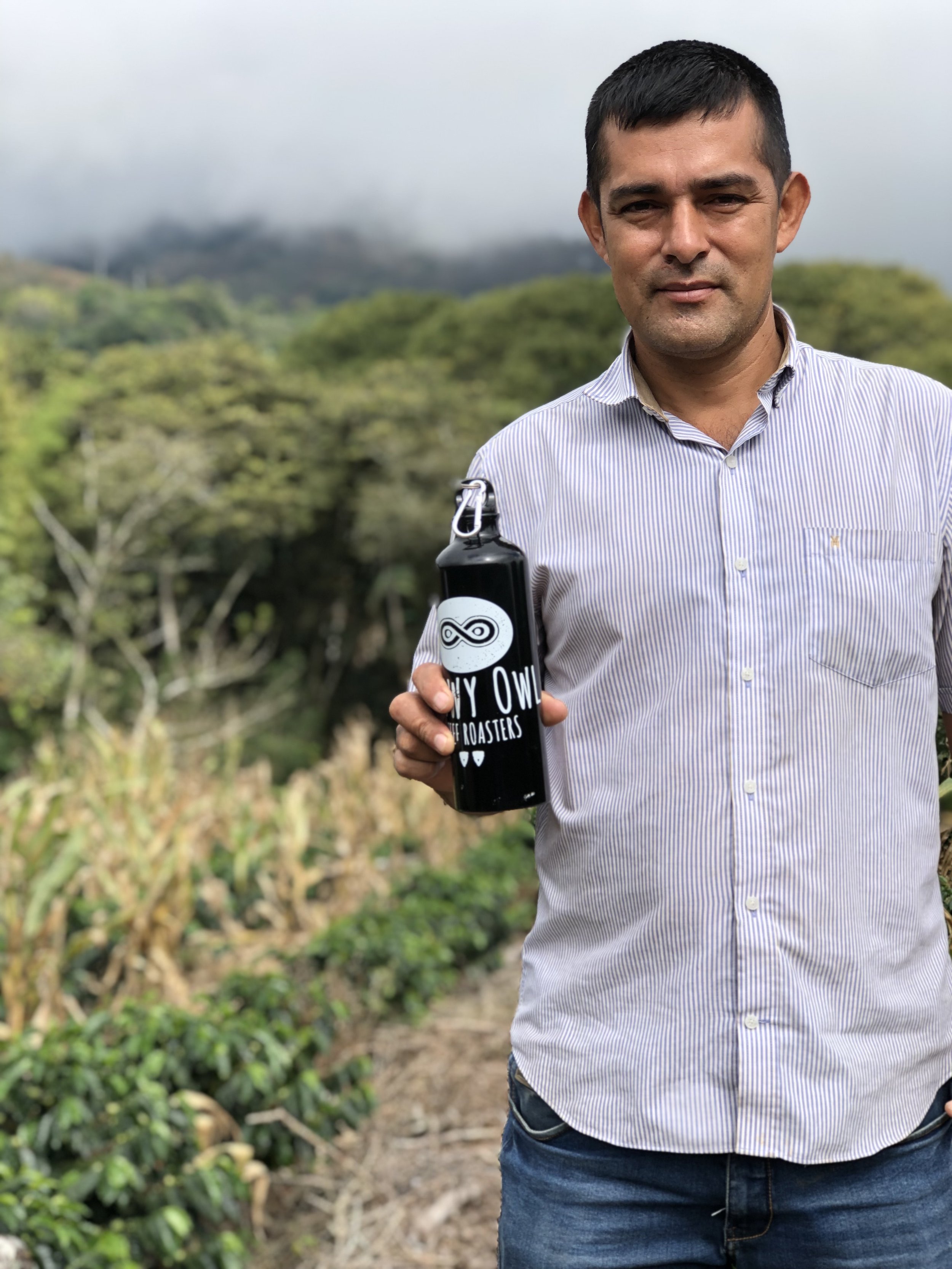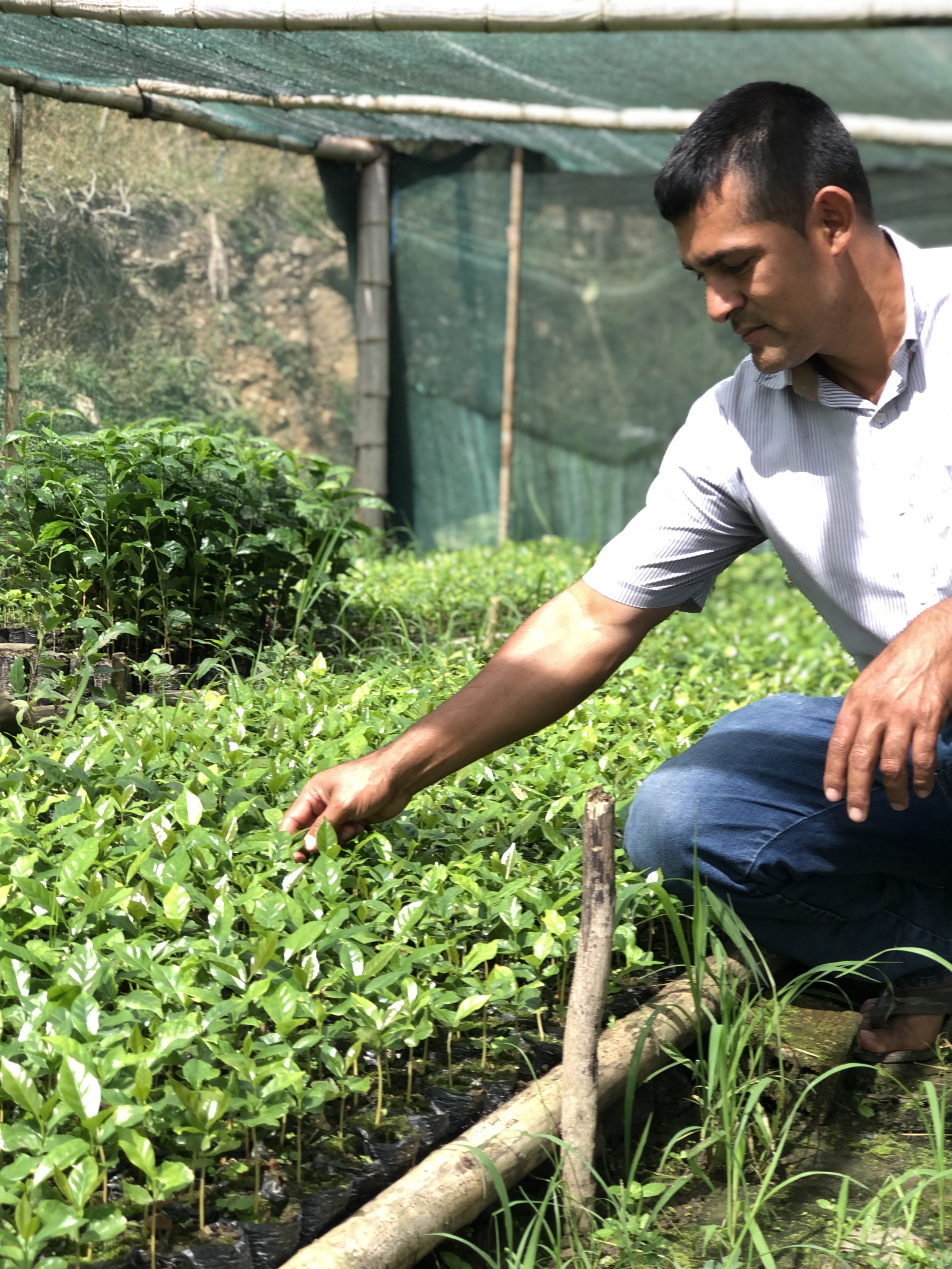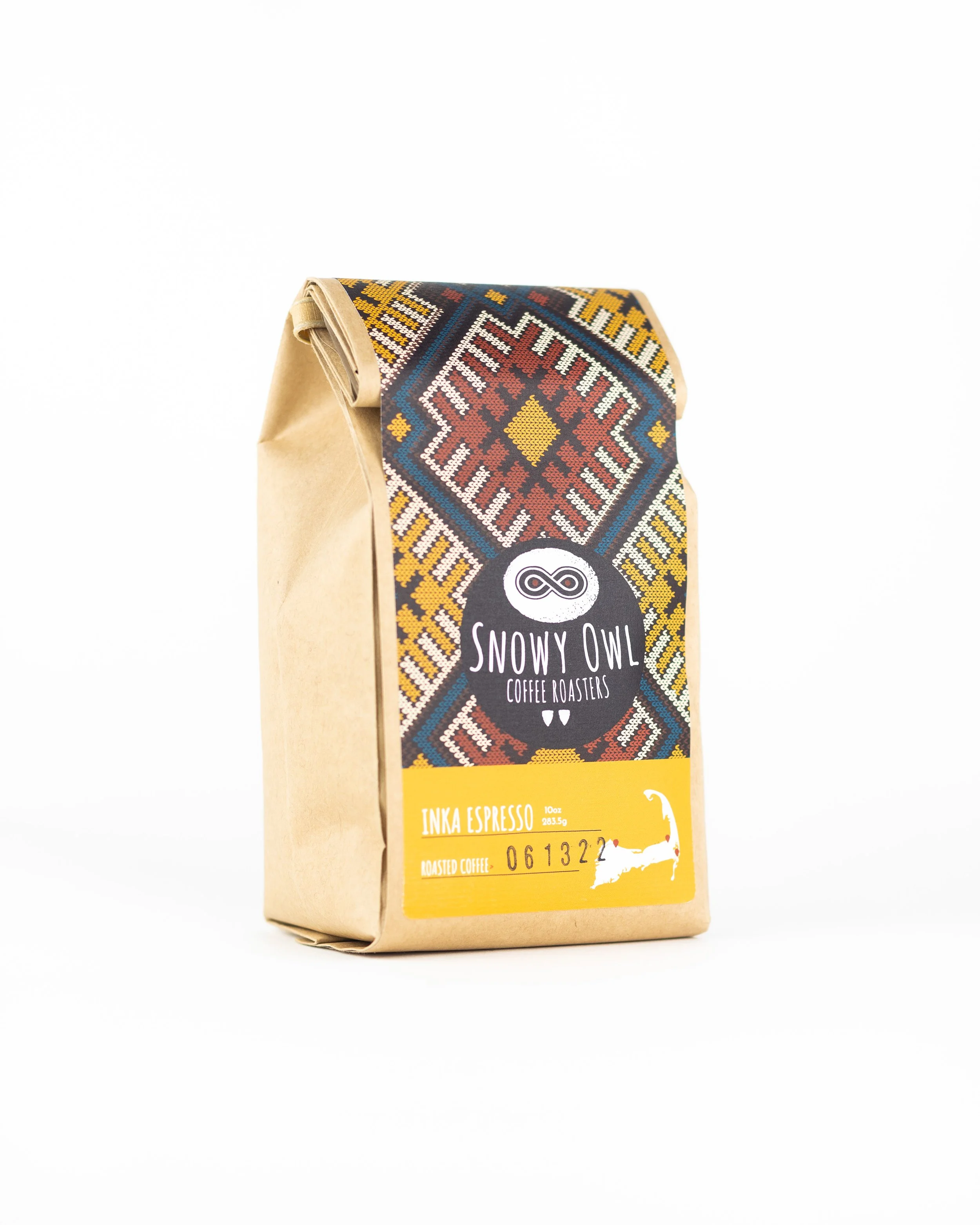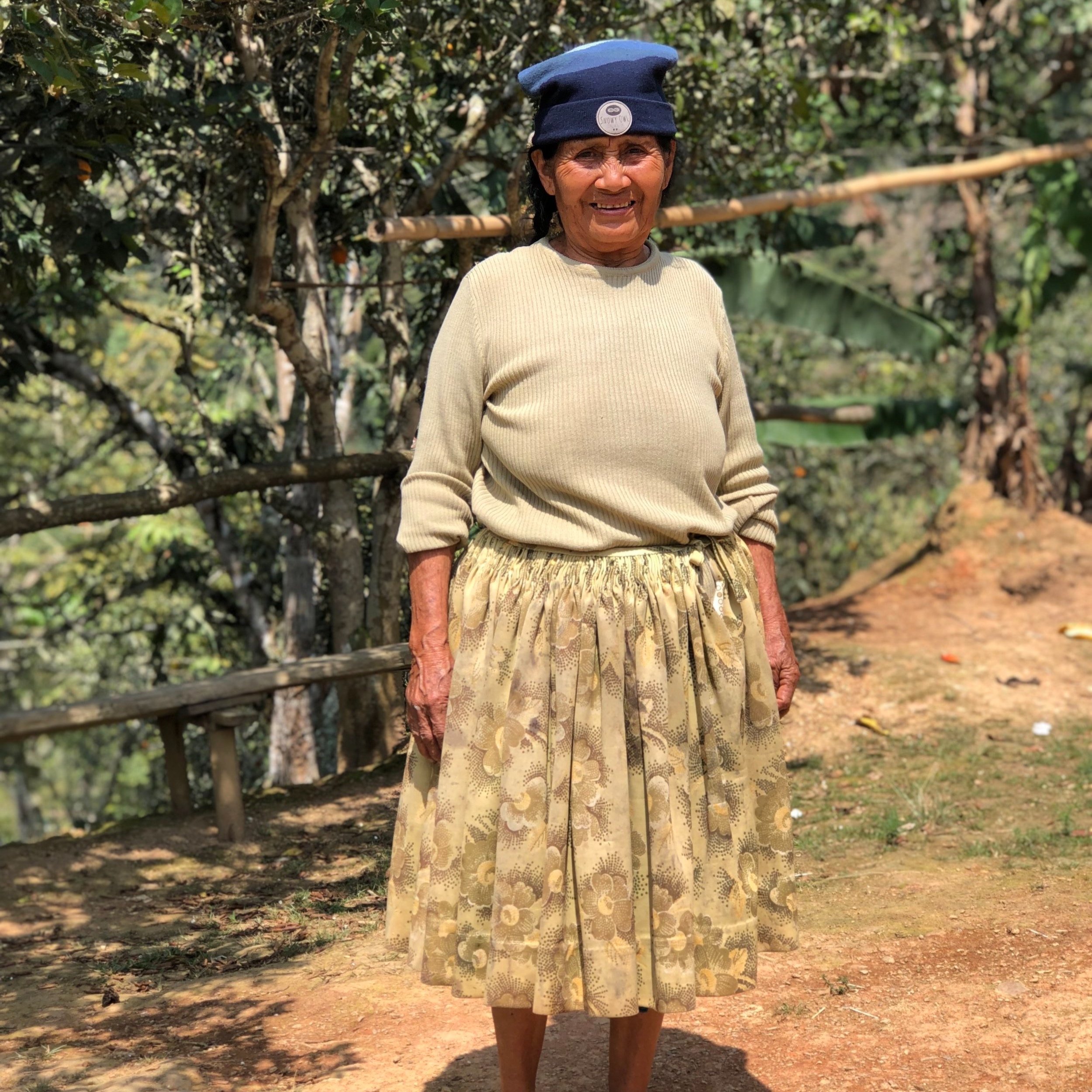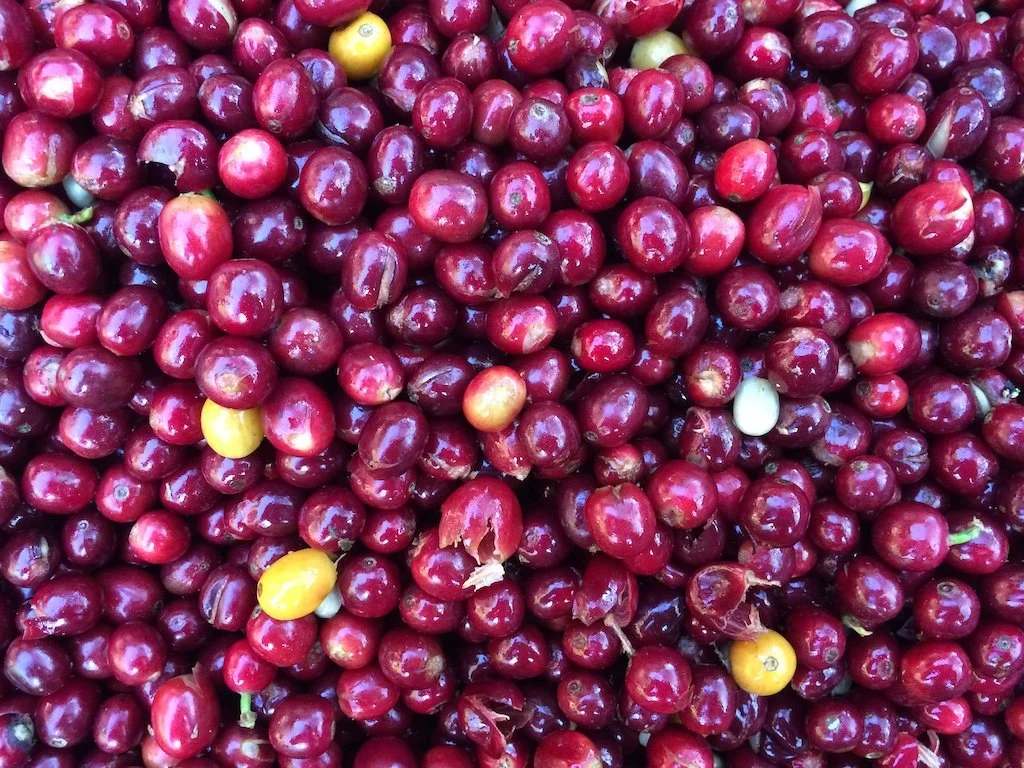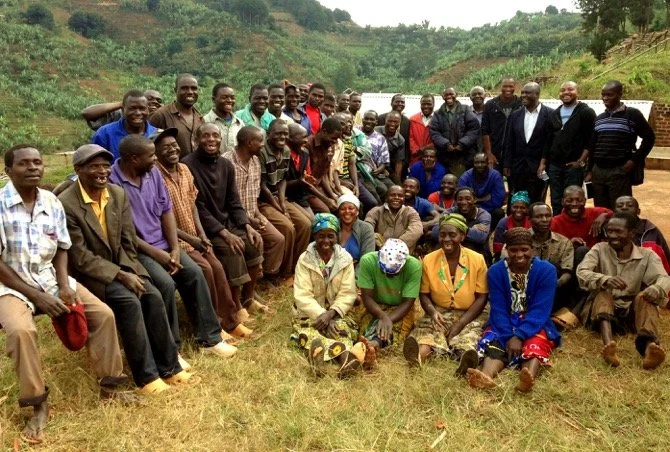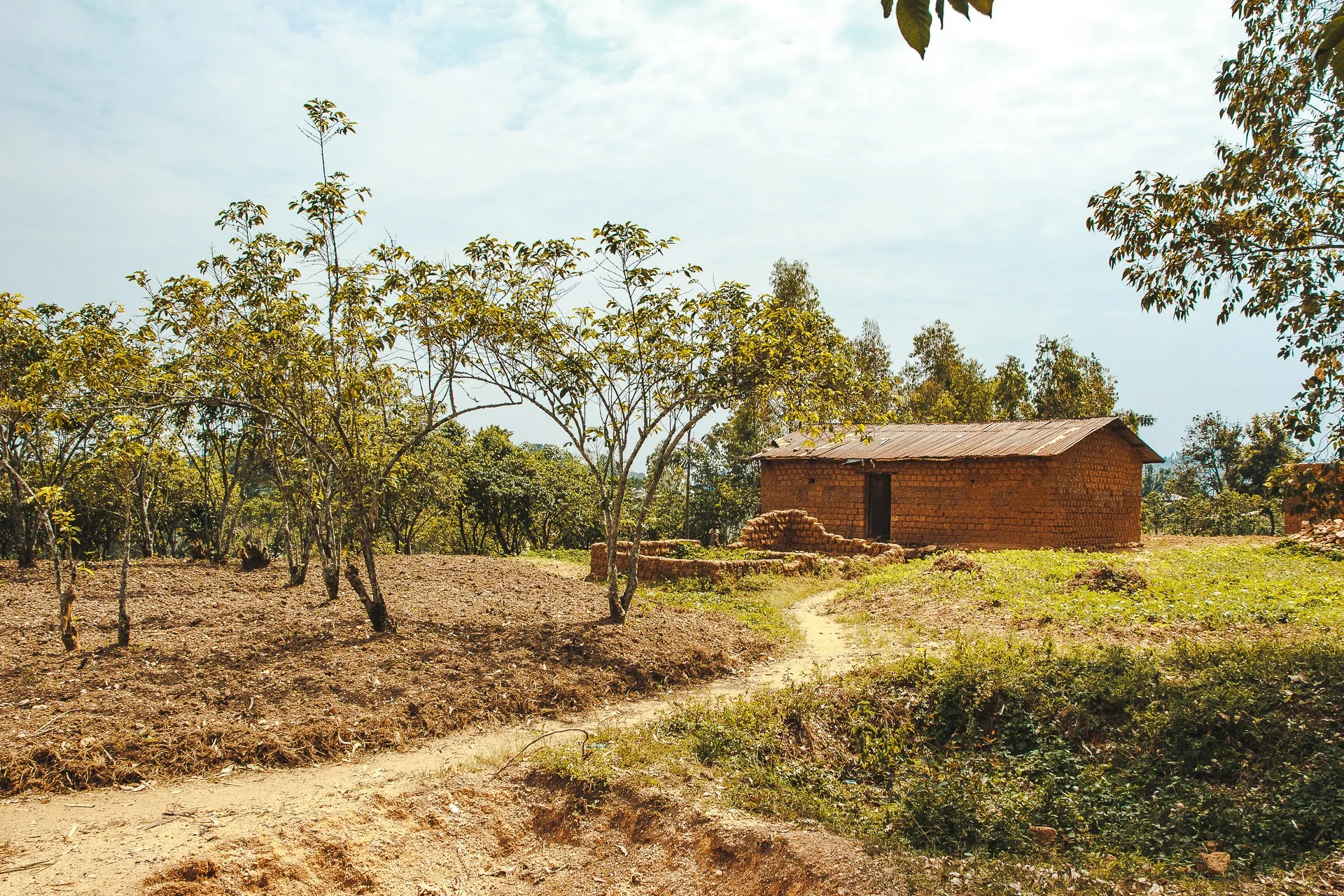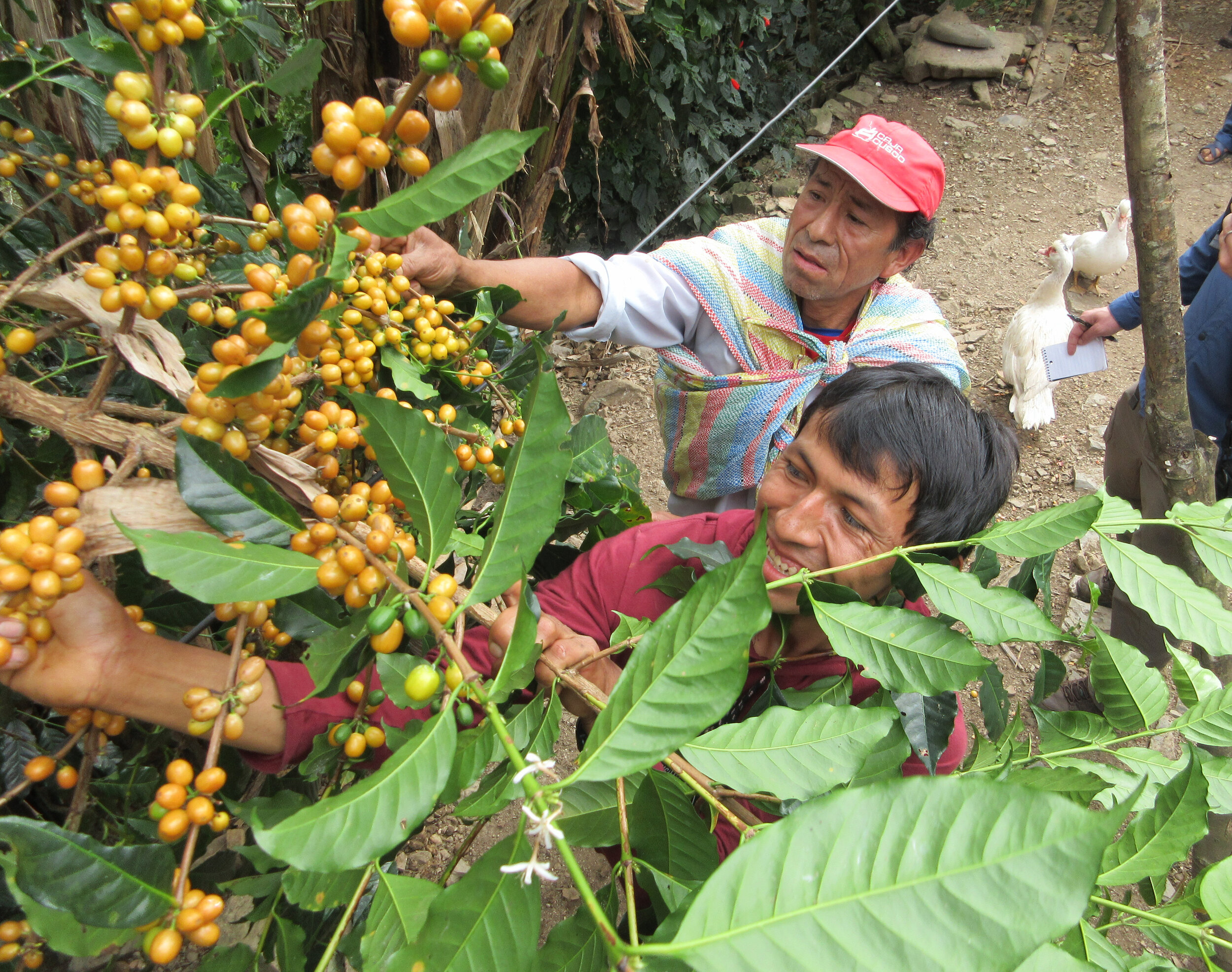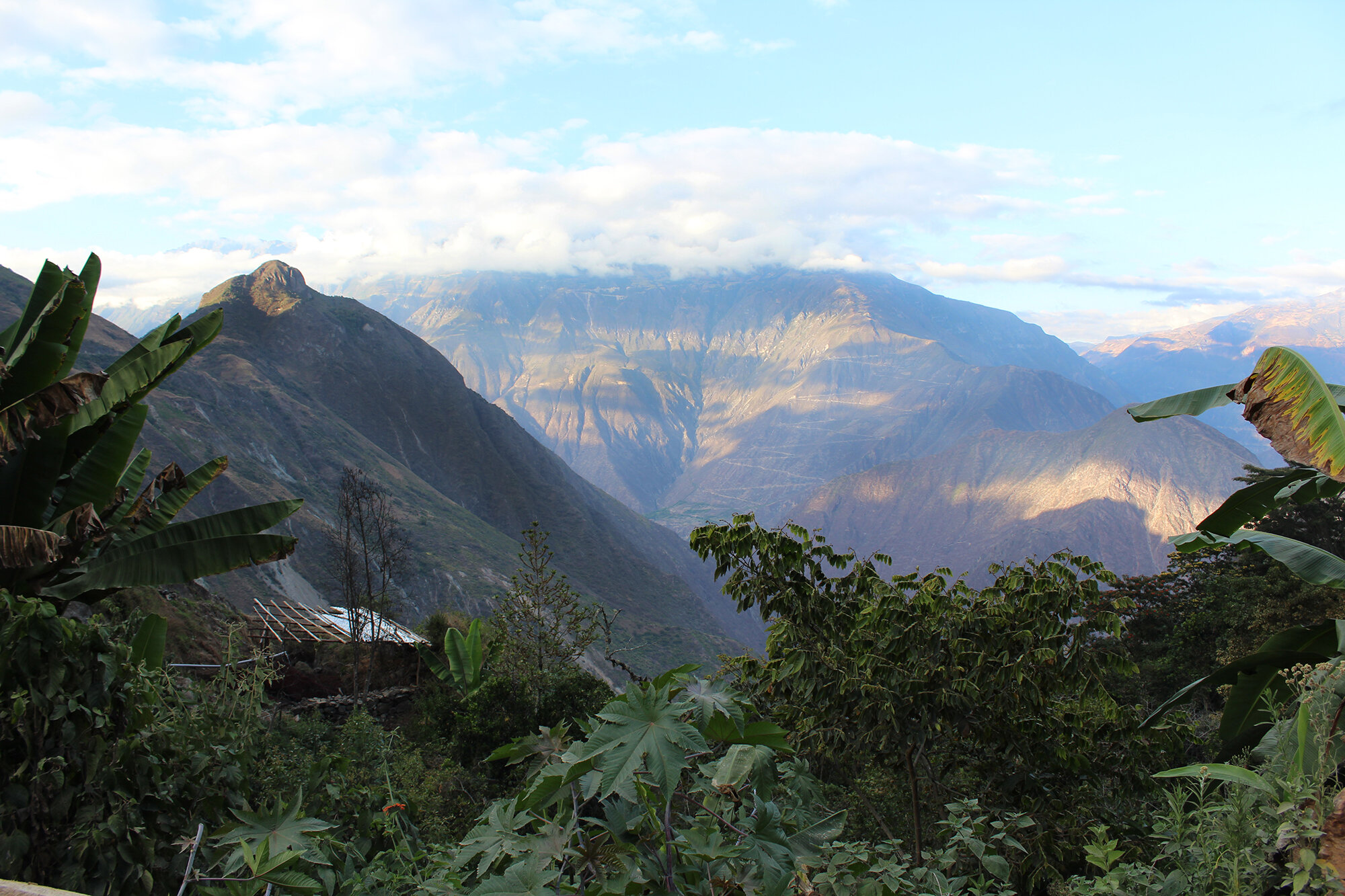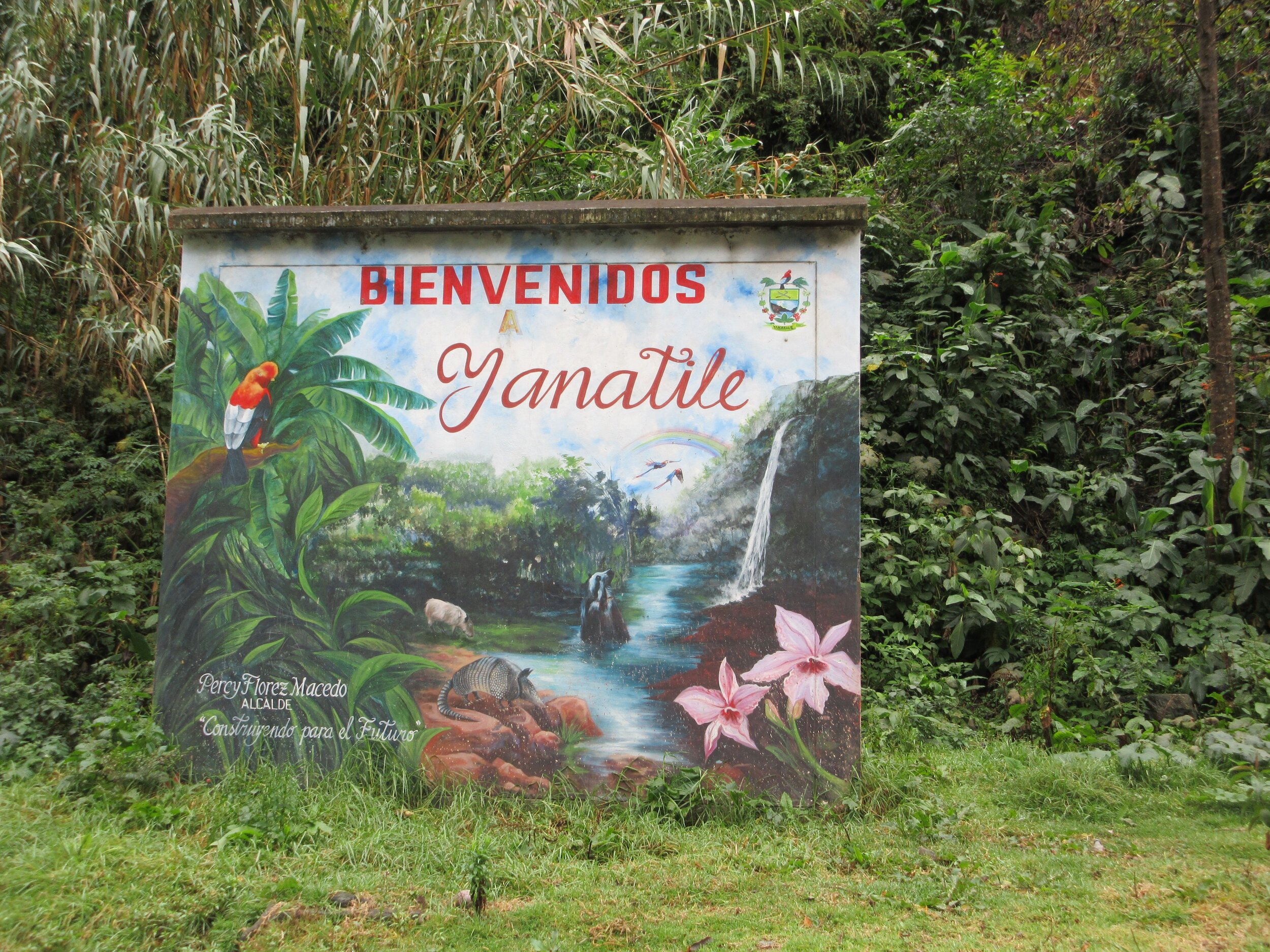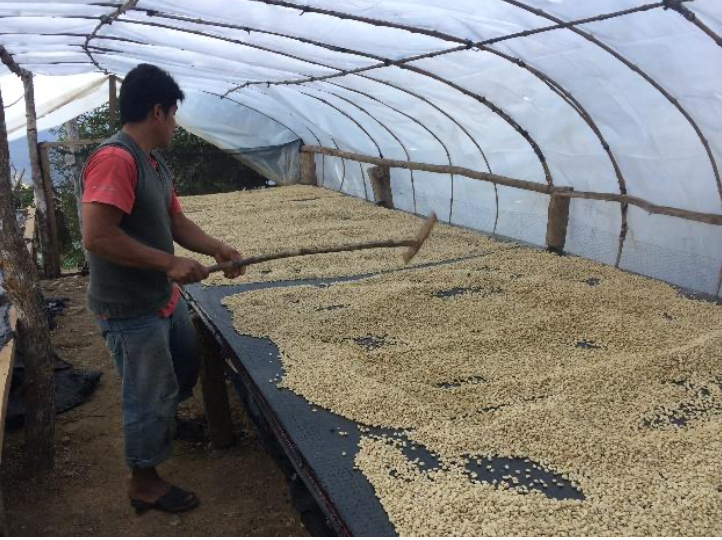Naming the Inka Espresso Blend
This blog was written in conjunction with the launch of our Inka Espresso, which you can view here.
We recently launched a single origin espresso for our summer lineup -the Inka Espresso Blend. This blend is directly sourced from Jaén and Puno and is our second release from our Peru partnership with Elmer Palacios.
Named in honor of the legendary Inka empire, Inka Espresso highlights two distinct Peruvian coffee regions home to the Andean mountain range. Hundreds of years later, Peruvians are still farming on winding terraces that were once home to the Inka, now home to coffee.
Before we dive into the brief history of a vast and rich civilization, let’s address the question on everyone's mind: Inka or Inca?
We chose to name our espresso blend in honor of the indigenous Quechua language. Although there is no right or wrong, the difference in syntax reflects spelling in two distinct languages. Simply put:
Spanish spelling: Inca
Quechua spelling: Inka
So who were the Inka?
The Inka ruled the largest empire in America, from 1400 A.D. until the Spanish conquest in 1530 A.D. The ancient civilization spanned across the high altitude terroir of the Andes mountains from southern Colombia to Argentina. The heart of it all: Peru.
Coffee Plants at Finca Las Naranjas in Jaén.
Traditional Andean weaving in Peru
Farming like the Inkas
The Inkas had lofty ambitions and left many legacies. One of their hallmarks was their complex farming systems. The Inkas built cisterns and irrigation canals that snaked and angled down and around mountains. Along with their predecessors, they crafted and perfected terrace farming systems in the Americas. These terraces not only leveled the planting area, but were extremely efficient at conserving water, proving to be incredibly sophisticated for their time.
The practice of terracing is critical to coffee farming systems still to this day. Farmers recognize that investing in land leveling can help save money on water, achieve higher crop yields, and is important to soil conservation. Currently archaeologists in Peru are looking to the past, rebuilding methods of pre-hispanic irrigation and farming in the face of climate change. There is much to be learned from these practices in the face of coffee production challenges.
Preserving tradition
The Inkas didn’t see themselves as separate from nature, which we see depicted in their cultural practices. Weaving was extremely important to their society, and continues to play an integral role in Peruvian culture. Quechan weavers are masterful in their mathematical patterns and brilliant colored images of plants and animals.
Inka weavers were some of the most accomplished in the Americas. Inka and present day Quechuans used textiles to bridge the natural world in a concrete manner. While the Inka had no written language, textiles were a way to tell stories and express ancestral beliefs and identity.
Coffee producer Hernando Bocanegra in his coffee nursery at Finca Las Naranjas in Jaén.
Coffee producer Doña Evangelina at her family farm in Puno.
In closer examination of our coffee bags, you will see these illustrations of animals and geometric shapes that tell a story. Our espresso blend marries this concept perfectly. In Andean textiles, white zig-zag lines symbolize a trail- often a reference to the Inka trail from Cusco to Machu Picchu. Further details of black stripes surrounding the trail are used to represent Inkan steps carved from stone.
Though it’s a challenge to relate the spirit and beauty of Peru in a meaningful manner- we let coffee be our medium. We hope our offerings can transpose these intricate stories and traditions. Coffee is such an integral example of how we can celebrate and share the worlds within the world.
Beyond Certifications: Why Snowy Owl Coffee Roasters does not prioritize Organic and Fair-Trade certifications
One of the most common questions we receive has to do with the organic and fair-trade certifications of our coffee products. This is a topic that could be debated for days. While we see a role for certifications in the coffee industry, we want to take an opportunity to explain why since our inception, we made the mindful decision not to prioritize these certifications in our coffee purchases.
One of the most common questions we receive has to do with the organic and fair-trade certifications of our coffee products. This is a topic that could be debated for days. While we see a role for certifications in the coffee industry, we want to take an opportunity to explain why since our inception, we made the mindful decision not to prioritize these certifications in our coffee purchases.
How Coffee is Priced: Commodity vs Specialty
As we have previously explained, producers of coffee are among the poorest in the world. The commodity price of coffee – also referred to as the C price - is set each day on the future’s market in the United States. As with most commodities and products, price is a function of supply and demand. However, unlike most products, in which the demand and supply are calculated in real time, C coffee prices are a function of what traders’ estimate will be the supply and demand in the future. It is often said that the most important indicator of the C market price is the weather in Brazil. This is because Brazil is the top producer of all coffee worldwide: the harvest in Brazil accounts for approximately one-third of all global coffee produced annually. Therefore, while demand for coffee may remain the same or slightly increase, the supply of coffee – which largely depends on the climate and weather patterns – will always change from year to year. This past summer, Brazil experienced a drought, followed up a cold snap, that has sent the C price of coffee to levels not seen in almost a decade. In short, producers selling on the C market have no control over the price they will receive, leaving them vulnerable to forces completely out of their control.
Producers who have shifted to selling specialty coffee, on the other hand, are receiving prices that correspond to the quality of coffee. Specialty Coffee’s new definition is below:
As coffee is “graded,” producers selling coffee that scores higher on the grading scale will receive premiums often equally to 100-200% of the C price of coffee. It’s no coincidence that the best tasting coffee has gone through a meticulous process that accounts for the health and well-being of the growing environment and the hands that have touched the coffee.
Fair Trade Coffee
The fair-trade movement began several decades ago but coalesced into its modern form at the turn of the century. Fair Trade USA, formerly Transfair, the largest fair-trade certifier in the US, opened its headquarters in 1998 and began certifying products in 1999. Fair Trade USA owns the label to the most well-known certification process. You will see this label on products from coffee to home décor.
According to Fair Trade USA, producers in their program are provided a minimum price of $1.40 per pound or 20 cents per pound more than the C price. During the years between 2016 and 2020, when the price of coffee hovered around $1/lb, this premium undoubtedly made a difference.
Criticism of Fair Trade USA / Transfair is everywhere and, in our opinion, are well-laid out in this article. The fair-trade premium does not incentivize quality production. Since it is based off the C market, farmers will get a fixed price for a sack of coffee regardless of the attention they may have paid to the quality during the growing, harvesting, and processing periods. As such, Fair Trade coffee is often low-grade.
Most importantly, there is little empirical proof that the fair trade movement has actually lifted the most vulnerable out of poverty. Coffee growers often rely on migrant workers to pick coffee cherries. And the fair-trade model does not account for these workers. Often, migrant workers are illegal and paid well below the minimum wage.
Organic Certification
The problems with organic certification are quite different to the issues outlined with fair-trade. Namely, organic certification costs a LOT and often results in lower yields, a risk that most small-hold farmers simply cannot take. Research depicts how certifications may trap producers in single, low-priced export cash crops, hindering agricultural diversification. Even further, converting a conventional farm to organic farming can take anywhere from 5 to 7 years, well in advance of when a farmer might know the price to be received or if the investment will pay off. Organic certification standards vary from country to country, so local inspectors must have recognition from all buying nations (i.e. US, Japan, S. Korea, Europe, etc.), which is expensive and must ultimately be incurred by the farm itself. Taken together, organic certification is reserved for larger producers with greater resources and an ability to take an enormous risk.
And as with fair trade certified coffee, organic certification has nothing to do with the quality of the coffee. There is plenty of low-grade coffee grown organically and subject to the organic premium, and there is plenty of non-certified coffee that is high grade, delicious, and grown according to environmental best practices. The latter is what we seek without requiring the expensive burden of the organic certification. While we have purchased and sold certified organic coffees many times in the past 6 years since opening, our goal is always to serve you the best tasting coffee that is ethically sourced and produced with all pillars of sustainability considered. Our producer partners are often employing organic practices. But some may use a synthetic fertilizer or fungal killer for the sake of salvaging an entire swath of their output. Granting our partners permission to take care of their land and maintain their livelihoods in a manner that is flexible and in their best interest is a pillar we hold dearly.
Final thoughts
The average price Snowy Owl Coffee roasters paid to our partners in 2021 is $3.52. This is a holistic average, including all our blend inputs and single origin lots. Blend inputs are typically the cheaper coffee that is blended together to create desired flavor profiles while masking some of the undesired flavors. Single origin coffees are priced higher because they are perfect as is. We feel that at the heart of every successful business is trust. By explicitly partnering with organizations that we trust, we can better effectuate equity in the supply chain. Organizations who prioritize the quality of the coffee, the sustainability and viability of the land, and the well-being of all growers and laborers on a farm are partners we seek to work with. Examples of partners whose values we feel are entirely in alignment with our own but are not necessarily certified include: JNP Coffee, Mighty Peace Coffee, Yego Coffee, Ally Coffee, and Red Fox Coffee.
While certifications may serve a purpose – namely, raising awareness of some of the key issues facing our coffee-growing communities and environment – we see them as unnecessary, burdensome, and sometimes even disingenuous. We will continue our quest to purchase the best tasting, sustainably produced coffee while ensuring that each hands that has touched this coffee is paid a living wage.
Peru, Cusco; Hurtado Castro Gaspar; Valle Inca Cooperative; Red Fox Coffee Merchants (Copy)
Department: Cusco
Province: Calca
District: Yanatile
Community: Walla
Farm: Acsa
Producer: Hurtado Castro Gaspar
Cooperative: Valle Inca
Altitude: 1900 masl
Variety: Typica
Process: Washed
Harvest Period: June - September
Flavor Notes: Lemon, Chocolate, Green Apple
This is our second Peruvian coffee from the Valle Inca Cooperative in Cusco. Hurtado Castro Gaspar produces this particular washed coffee that is of the typica varietal at an elevation of 1,900 meters. Manuel is a part of the newly formalized Valle Inca Cooperative that is located in the Yanatile Valley. This cooperative is relatively new with 101 members and is quickly growing.
Valle Inca is led by Prudencio Vargas Saenz, a former agricultural loan officer. The knowledge he has from his previous work has greatly impacted how he operates Valle Inca. This cooperative was an informal group for many years, until this year when it was incorporated in order to gain organic certification, FairTrade certification, and the ability to export on its own. Valle Inca and Prudencio are well respected in the Calca province, due to Prudencio’s trustworthiness, dedication, and drive to invest in his community. He pays higher prices to his farmers to promote their stability, improving the health of the overall community and in doing so the coffee produced in these areas are almost always of a high quality. Due to the leadership of Prudencio, the value of this relationship he has with the producers shines through in each cup. Valle Inca produces consistently exceptional coffees that can satisfy the taste buds of a specialty coffee professional while still being approachable enough for the everyday coffee drinker.
Peru, Cusco; Manuel Patilla Carrasco; Valle Inca Cooperative; Red Fox Coffee Merchants
Department: Cusco
Province: Calca
District: Yanatile
Community & Farm: Chaquimayo
Producer: Manuel Patilla Carrasco
Cooperative: Valle Inca
Altitude: 2100 masl
Variety: Typica & Caturra
Process: Washed
Flavor Notes: Toasted almond, Cocoa, Orange
Manuel Patilla Carrasco has been producing coffee for 18 years, over half of his lifetime, on his family’s farm called Chaquimayo. He produces this particular washed coffee that is of the typica & caturra varieties at an elevation of 2,100 meters. Manuel is a part of the newly formalized Valle Inca Cooperative that is located in the Yanatile Valley. This cooperative currently has 101 members and is quickly growing.
Valle Inca is led by Prudencio Vargas Saenz, a former agricultural loan officer. The knowledge he has from his previous work has greatly impacted how he operates Valle Inca. This cooperative was an informal group for many years, until this year when it was incorporated in order to gain organic certification, FairTrade certification, and the ability to export on its own. Valle Inca and Prudencio are well respected in the Calca province, due to Prudencio’s trustworthiness, dedication, and drive to invest in his community. He pays higher prices to his farmers to promote their stability, improving the health of the overall community and in doing so the coffee produced in these areas are almost always of a high quality. Due to the leadership of Prudencio, the value of this relationship he has with the producers shines through in each cup. Valle Inca produces consistently exceptional coffees that can satisfy the taste buds of a specialty coffee professional while still being approachable enough for the everyday coffee drinker.
Staff Spotlight: Ellen O'Donnell
What is your favorite menu item?
My fav drink is an oatmilk cappuccino. Love it early in the morning when the cafe dark and quiet and I’m prepping for opening. I also love sharing a Chemex using the Honduras beans
What customers do you miss seeing the most?
I miss our customers and reciprocity of bringing smiles to each other’s faces. I for sure miss one of my favs whose amazing personality and genuineness always brings me happiness- Michaela! happy birthday - thanks for being you!!
What have you been doing with your time?
I’ve been in Peru for 3 weeks. I spent time in Lima with gorgeous ocean views , beaches and sunsets. Then on to Cusco and the small villages of Urubamba and then by train onto Aqua Calientes at the base of Machu Picchu. Breathtaking hikes and scenery!!
To curb the virus, the government shut its borders and we have been awaiting a joint governmental flight back home!! Did not get to see as much of Peru as I had hoped but looking forward to returning again for sure!
Peru, Cusco – Lucmabamba; Huadquiña Cooperative - Red Fox Coffee Merchants
Region: Cusco
Province: La Convención
District: Santa Teresa
Community: Lucmabamba
Number of Producers: 11
Cooperative: Huadquiña
Altitude: 1800 – 2000 masl
Variety: Typica, Caturra, Bourbon
Process: Washed
Flavor Notes: Fig, Honey, Orange
Huadquiña cooperative is located in Santa Teresa, Cusco, Peru. It is near the base of the Templo de La Luna, an ancient Incan ceremonial temple, which is on the Urubamba river. Huadquiña started as a small operation in 1964 but since Red Fox Coffee Merchants began working with them in 2015, they’ve quickly grown with 11 producers contributing their harvests. Until recently the nearest major coffee trading hub, Quillabamba, which is about 90 minutes away from Huadquiña was ruled by a large cooperative union. This caused smaller cooperatives great difficulty in navigating the trade channels; because of this, the quality potential from this region went unnoticed and unrealized for many years. In 2015, the large ruling organization was disbanded, opening up the region to new trading opportunities that it had never experienced before. La Convención is far off the beaten path, a 6 hour drive to town through high mountain passes. The varietals found in this area are typically bourbon, typica and caturra and are produced at elevations between 1,800 – 2,000 meters above sea level.
This coffee is currently available in-stores and for purchase online
Finca El Cipres - Farm to Roast
Finca El Cipres is a small farm run by Jose Herrera and his family in Huabal, Jaen, Peru. Located adjacent to a protected forest and the Chorro Blanco waterfall, it rests at an elevation of 1800 meters above sea level. The farm is only accessible after a 30-40 minute trek on horseback or by foot through mountainous terrain. Because of this, Jose and his family live on the farm during the harvest season. Along with coffee, there is an abundance of cypress trees (the farm’s namesake), sugarcane, and banana trees. The family of Jose Herrera has been growing coffee for several generations, his father and his grandfather currently work alongside him on this property. Sourcing from their 90% Red Caturra and 10% Yellow Caturra beans, this coffee was the winner of a regional coffee competition between over 50 farms. Once harvested, the fully ripened cherries are wet-processed and sun-dried on concrete patios for 7-12 days. A cup of this light and airy coffee may bring up notes of citrus, caramel, and strawberry.
Edgar Prudencio – Pisonayniyoq Farm; Cusco, Peru – Campesino Mateo
Region: Cusco
Producer: Edgar Prudencio
Farm: Pisonayniyoq
Altitude: 1,800 – 1950 masl
Varietal: Typica and Bourbon
Process: Fully washed
Harvest Period: July-September
Flavor Notes: Aromas of caramel, red berries – mild acidity nicely balanced with the sweetness of cocoa nibs and sugarcane juice
Edgar Prudencio’s farm sits in the Quellouno valley within one of the smaller sub-valleys formed by creeks and gullies that run through the landscape. He was born on this farm and relies heavily on the coffee he produces. Apart from growing coffee, he takes care of his mother who still lives on the land. Unknowingly, he has been producing specialty coffee for many years and now is excited at the opportunity to reap the rewards from it. In addition to coffee, he grows bananas, cherimoya, yuca, taro root and other vegetables, with hopes of expanding into other markets. He uses natural farming practices to get the most he can out of his trees, by making his own organic compost out of coffee cherry skins, guano de isla, phosphoric rocks, and decomposing organic matter. He processes all his coffee using a fully washed method, with the beans drying in their parchment on raised beds in his greenhouse.
Heber Moscoso, Chintamocco Farm – Campesino Mateo
Heber’s farm is located 1,850 meters above sea level, in the Quellouno Valley of Cusco. He grew up in this region working on coffee farms alongside his family. They rely heavily on the income they get from their production and sale of coffee, however they now have plans to expand their crop to include other fruits and vegetables. Heber used a traditional fermentation method this year that resulted in a clean and balanced cup of coffee. The trees on his lot are all of the Typica variety and are selectively harvested by picking the highest quality beans. Although this coffee is not certified organic, Heber and his family follow natural and organic practices. When drinking this coffee you can expect to taste notes of lemon, cocoa, and caramel.
Eusebio Ayequipa & Ilda Alvarez, Quellounuyoq Farm – Campesino Mateo
Located 2,400 meters above sea level in Peru’s Valley of Saxsara, Eusebio and Ilda’s farm is considered to be one of the highest elevation farms in the world. Climate change and the melting of nearby glaciers has sped up the growth of their coffee, yielding a plentiful harvest. The location of their farm also benefits from many streams that keep their soil fairly humid year round, which sustains them through the dry season extending their growing period to 9 months in total. On their property, Eusebio and Ilda also produce avocados, passion fruits, sugarcane, bananas, guinea pigs, chickens and ducks. In this coffee you can expect a clean and balanced cup, with flavor notes of orange, cocoa, and caramel.
Gregorio Quispe Mamani; Cusco, Peru - Campesino Mateo
Snowy Owl is proud to present this Limited Edition Direct Trade Coffee from the farm of Gregorio Quispe Mamani. The passion Gregorio and his family have for their coffee is as rich as its flavor. Gregorio only hand selects the ripest cherries and manually pulps and processes them on his farm located in the Cusco region of Peru. This attention to detail and quality yields a deliciously sweet cup that offers notes of lemon and cocoa with a nutty finish. We are thrilled to be partnering with Campesino Mateo to bring this delicious coffee from Gregorio’s home in Peru to our home here on Cape Cod.
Peru APROSELVA
Region: Junin
Growing Altitude: 1,200 to 1,800 meters
Arabica Varietals: Typica, Catimor, Bourbon, Caturra and Catuai
Process: Fully washed and dried in the sun or mechanical driers
Suggested Brew Ratio: 1:15
APROSELVA (Asociacion de Productores Cefetaleros Selva Central) is a producer cooperative located in the region of Junin of Peru. APROSELVA is made up of 530 members from over 15 small communities in the Provinces of Chanchamayo and Satipo. Many of the growers speak Quechua and have preserved a rich indigenous lifestyle and culture. APROSELVA was established in 2012 to support coffee producers by providing training and micro-financing to growers who want to improve coffee-quality and sell within the specialty coffee niche. These small-lot farms are, on average, 10 hectares and incorporate several types of citrus fruits and vegetables. The crop diversity enriches the soil and provides shade for the coffee plants. Some of the vegetation found includes peppers, pineapple and papaya. The coffee is creamy and smooth and offers notes of dark chocolate, hazelnut, and lemon.
Peru Cunavir
Region: Pasco
Growing Altitude: 1,400 - 1,800 meters
Arabica Varietals: Catimor, Caturra, Typica, Burbon
Process: Machine Dried
Suggested Brew Ratio: 1:16 or 1:17
Also known as CooperVillar, Cunavir is centrally located in the Villa Rica District in the region of Pasco. They are producers of coffee by tradition since the 1960s. Its 230 members are mostly traditional, third generation growers. Many of the farms implement sustainable practices and are organic and fair trade certified. This Peru is bold and full bodied with roasted almond, cocoa, and herby notes.
Peru - Campesino Mateo - Monterico
Region: Cusco
Growing Altitude: 1,800 – 1,850 meters
Arabica Varietals: Typica, Pache, Red and Yellow Bourbon, Catimor
Process: Washed, sun dried (processed on farm)
Monterico is a microlot located on a second-generation family farm in Cuso. The farm is very focused on environmental sustainability and establishing Cusco as one of the premier coffee-growing regions in South America. The farm employs all best practices, including the use of the organic fertilizer of “guano de isla” and rich compost, prepared with coffee cherry skins, chopped banana stems, and other organic matter from the farm. The coffee offers cacao and sweet vanilla notes, with mild acidity and a very clean finish.
Organic Peru Tahuantinsuyo
Growing Altitude: 900 - 1,400 msnm
Arabica Varietals: Caturra, Pache, Typica, Gran Colombia, Catuai y Catimores
Process: Dry
From the Cooperativa Agraria Cafetalera Tahuantinsuyo in the Chanchamayo region of Peru, this coffee offers earthly flavors with hints of vanilla, walnut, and orange. The Tahuantinsuyo Agrarian coffee co-op is a small producer organization founded in 1974, with 397 producers. Some benefits the co-op offers to its members are technical assistance, partner training programs and financing for maintenance and replanting. They also have a women's committee to help certify coffee within their women members.

